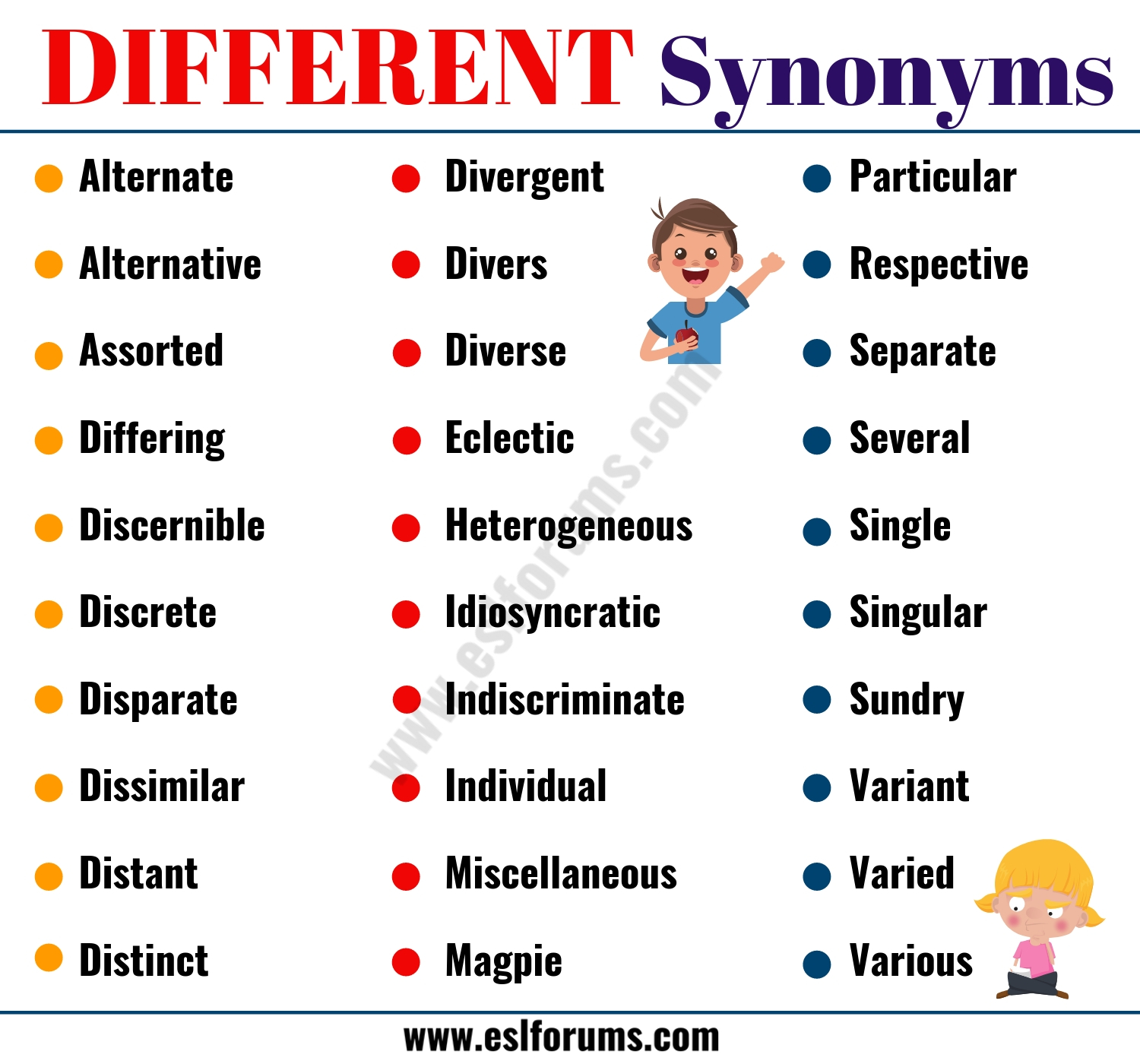Popularized Synonyms: How Words Get Their Moment In The Sun Today
Have you ever noticed how certain words just seem to appear everywhere, becoming the preferred way to say something that already has a perfectly good equivalent? It's a rather fascinating shift in language, isn't it? This idea of a "popularized synonym" speaks to how our everyday talk, and even very specialized discussions, pick up new favorites. It's about how one word, out of a group that means nearly the same thing, suddenly gets a lot more attention. This happens all the time, and it truly shapes how we connect with each other, you know, making our messages either clearer or, sometimes, a little different.
Think about it for a moment: why do some words catch on while others, meaning almost the same thing, just sort of fade into the background? It's not always about a word being "better" or more accurate, but often about trends, how people feel, or even what's happening in the news. This constant change shows us how alive language truly is, always shifting and adapting to what we need it to do. It’s a bit like watching a garden grow, where some plants just seem to thrive and spread more widely than others, even if they’re all good in their own way, so to speak.
Understanding these shifts in word preference can really help us communicate better, whether we're talking about daily life or something much more specific, like financial markets or physics concepts. It helps us pick the right words for our audience, making sure our message truly lands. We'll look at how these word choices play out, and how they shape our conversations, even when we're dealing with very precise information, as you might find in a text about current stock market numbers or detailed physics problems, actually.
Table of Contents
- What is a Popularized Synonym?
- Why Do Words Become Popular?
- The Impact on Language and Communication
- Spotting and Using Popularized Synonyms
- Popularized Synonyms in Action: Lessons from My Text
- Frequently Asked Questions
What is a Popularized Synonym?
A popularized synonym is, quite simply, a word that gains widespread favor over its close relatives. It's a term that, while having other words that mean nearly the same thing, somehow becomes the go-to choice for many people. Think of it this way: if you have a group of friends, and one friend suddenly becomes the one everyone calls first for advice, even though all your friends are smart, that's kind of what happens with words, you know. It's not that the other words are wrong or bad; it's just that one particular word gets picked out and used a whole lot more, very often.
This preference can come from many places. Sometimes, a word might just feel a bit more modern, or perhaps it has a slightly different shade of meaning that people find more fitting for current situations. Other times, it could be that a word is just easier to say or remember, or it might be used by someone influential, and then it spreads. It's a subtle but powerful process that shows how language is always moving and changing, really.
For example, you might have several ways to talk about something being "good," like "excellent," "fine," "superb," or "great." But in a certain period, or among a certain group, one of those words might just become the typical choice. It's a fascinating thing to observe, and it tells us a lot about how people think and communicate, actually. This sort of word preference is a natural part of how language lives and breathes, so it's almost a constant thing.
Why Do Words Become Popular?
The reasons why certain words get picked up and used more often than their synonyms are pretty varied. It's not usually one single thing, but often a mix of social currents, what's happening in our culture, and how we share information. These factors can give a word just the push it needs to become a favorite, you know.
Social and Cultural Influences
Our social circles and the broader culture we live in play a big part in how words spread. If a word is used by popular figures, in music, in movies, or by people we look up to, it can quickly become common. It's a bit like a fashion trend for words, where what's "in" can change quite quickly, sometimes. Words can also become popular because they resonate with current feelings or ideas, or perhaps they just sound more appealing to a new generation, that's certainly a factor.
Think about how certain slang terms become widely understood, even if they started in a small group. They get picked up, shared, and suddenly, everyone knows what they mean, and they might even replace older, more formal ways of saying things. This process shows how powerful our shared experiences and connections are in shaping the words we choose, and it's very much a group effort.
Media and Technology Impact
The way we get our information today, through social media, news sites, and various online platforms, has a huge impact on how words become popularized. A term can spread globally in minutes if it goes viral, or if it's used repeatedly in headlines or trending topics. This rapid sharing means that words can gain popularity at a speed that was impossible just a few decades ago, you know.
Online communication, with its short messages and quick interactions, often favors words that are punchy, easy to type, and widely understood. This can lead to certain synonyms being chosen over others simply because they fit the fast-paced nature of digital talk. It's almost as if the medium itself helps to pick the words, which is a rather interesting thought, isn't it?
Specialized Fields and Precise Language
In fields like finance or science, words often get popularized not just because they sound good, but because they offer a very specific meaning or a level of precision that other synonyms might lack. For example, in the financial world, as you might see in a text about "Aktueller dax kurs und historische entwicklung," terms like "Kurs" (rate or price) or "Performance" are used with a very particular, understood meaning. While you could use "value" or "return," the specific terms "Kurs" and "Performance" become the preferred, popularized synonyms within that context, because they convey exact concepts related to "Aktien, Kurse, Charts, Listen und News" and "Dax perfomance index mit infos zur volatilität," you see.
Similarly, in physics, as hinted at in "Our resource for tutorials in introductory physics includes answers to chapter exercises," words like "displacement," "velocity," and "acceleration" are the standard, popularized terms. While you could use "movement," "speed," or "rate of change," these specific physics terms are chosen because they have very precise definitions within that academic area. They are the accepted way to talk about "how these concepts relate to motion" or to solve problems like "A → × B → = −40.1 k ^," you know. This precision is vital for clear communication within these fields, making those specific terms the popularized synonyms for technical discussions.
So, in these specialized areas, the 'popularization' of a synonym is often driven by a need for clarity and exactness, rather than just general appeal. It's about ensuring that everyone in that field understands precisely what is being discussed, which is very important for things like "Textbook solutions for tutorials in introductory physics 1st edition peter s, Shaffer and others in this series," where accuracy is key, you see. This is a very different kind of popularity, more about function than fashion, in a way.
The Impact on Language and Communication
When certain synonyms become more popular, it has a ripple effect on how we use language and how well we understand each other. It’s not just a minor change; it can truly shape the way ideas are shared and even how we think about things, actually.
Clarity and Nuance
Sometimes, a popularized synonym can bring greater clarity to a discussion. If everyone agrees on using a specific word for a particular idea, it can reduce confusion and make conversations flow more smoothly. This is especially true in technical fields, where a precise term can prevent misunderstandings that might arise from using a more general word. For example, in finance, when you say "Dax perfomance index," it's very clear what you mean, rather than just saying "how the Dax did," which is less precise, you know.
However, the opposite can also happen. If a word becomes so popular that it starts to be used for too many different things, it can lose its specific meaning, making communication less clear. It's a bit like having a tool that's supposed to do one job, but then you start using it for everything, and it becomes less effective for its original purpose, that's kind of what happens, sometimes.
Loss of Older Terms
When a synonym gains a lot of traction, older, less popular words that mean similar things might start to be used less and less. Over time, some of these older terms can even fall out of common use entirely. This is a natural part of language change, but it does mean that some of the rich variety in our vocabulary can be lost, you know. It's a bit sad, perhaps, to see words disappear, but it's also a sign that language is a living thing, always adapting.
This process can also mean that certain nuances or subtle differences in meaning that were once expressed by those older words might fade away. If a new, more general word takes over, some of the finer distinctions can get blurred. It’s a trade-off, really, between efficiency in communication and the richness of expression, so it's a constant balance.
Spotting and Using Popularized Synonyms
Being aware of popularized synonyms can truly help you write and speak more effectively. It allows you to choose words that resonate with your audience and make your message feel current and relevant. It’s a skill that can be developed over time, and it’s very useful, actually.
Here are a few ways to spot and use them:
- Pay attention to current trends: Notice which words appear frequently in news articles, popular media, and online discussions. If you see a word being used a lot to describe something that could also be said another way, it might be a popularized synonym.
- Read widely in your field: If you're writing about finance or physics, as in "My text," observe the specific terminology used by experts. For instance, "Der dax ist heute der wichtigste deutsche aktienindex" uses "wichtigste" (most important), which might be a popularized way to describe its status compared to other indices, you know.
- Use online tools: Search engines can show you how often certain phrases are used. You can also use thesauruses or grammar checkers that suggest alternatives, though always consider context.
- Listen to how people talk: Everyday conversations are a great source for understanding what words are currently in favor. If everyone around you starts using a particular word, it’s a good sign it’s becoming popularized, very much so.
When you choose to use a popularized synonym, think about your audience. Does it make your writing more accessible? Does it add a specific tone you're aiming for? Sometimes, sticking to a classic term is better, especially if precision is key, but often, embracing a currently favored word can make your content feel more engaging and connected to the present moment, so it's a bit of a judgment call.
Popularized Synonyms in Action: Lessons from My Text
The text you shared, covering topics from financial markets to physics tutorials, offers some interesting insights into how specialized language develops and how certain terms become the "go-to" words within their fields. While it doesn't explicitly discuss synonyms, it shows us how specific vocabulary becomes popularized for clarity and accuracy, which is very important in these areas, you know.
Consider the financial part of "My text." Phrases like "Aktueller dax kurs und historische entwicklung" or "Einzelwerte zu allen wichtigen aktien, wertpapieren und indizes" use terms that are very precise within the financial world. "Kurs" (rate/price) is a prime example. While "price" is a general synonym, "Kurs" is the popularized and specific term used when discussing stock market values in a German context, particularly for "Dax perfomance index." It's the accepted, common word among those who follow "Aktien, Kurse, Charts, Listen und News." This preference isn't just arbitrary; it's about conveying a specific financial concept that anyone in the field will immediately grasp, you see. It’s a very practical kind of word popularity.
Similarly, the physics section of "My text" highlights how foundational concepts rely on very specific, almost popularized, terms. "This chapter builds on the concepts introduced in chapter 1, specifically displacement, velocity, and acceleration." These three words are not just any synonyms for "movement" or "speed." They are the *popularized* and precise terms within physics. For instance, while "speed" is a general concept, "velocity" is its popularized synonym in physics because it includes direction, which is a crucial detail for problems like "A → × B → = −40.1 k ^." This kind of precision is why students use "Textbook solutions for tutorials in introductory physics" and why resources like "Our resource for physics includes answers to chapter exercises" exist; they reinforce the use of these specific, widely accepted terms, you know. It’s a bit like a secret handshake for people in the field, making sure everyone is on the same page.
The consistency in using these terms across various "chapter exercises" and "solutions to over 1,000 physics problems" helps to popularize them within the academic and professional physics community. It's a process driven by the need for exact communication, ensuring that "how these concepts relate to motion" is understood without ambiguity. So, in these technical areas, "popularized synonym" often means the most accurate or conventionally accepted term, which is slightly different from how a word might become popular in general conversation, but it's popularity nonetheless, very much so.
This shows that word popularity isn't just about what sounds trendy; it's also about what works best for a particular purpose or community. Whether it's the specific "Kursentwicklung der dax kurs heute" or the detailed "Lesson 1 the science of physics watch on lesson 2," the language used becomes the standard, the popularized way to talk about these things. It's a reflection of a community's shared understanding and precision, which is truly fascinating, you know, and quite important.
You can learn more about language evolution on our site, and link to this page for word origins.
Frequently Asked Questions
What makes a synonym "popular"?
A synonym becomes popular for many reasons, actually. It could be because it feels more modern, sounds better, or is used a lot by people who are widely recognized. Sometimes, it’s just easier to say or remember. In specialized areas, a synonym might get picked up because it offers a more precise or clearer meaning than its alternatives, which is very often the case in finance or science, you know. It's a mix of cultural trends, media influence, and practical communication needs, really.
Can a new word completely replace an older one?
Yes, sometimes a new word, or a popularized synonym, can almost completely take the place of an older one. This happens quite gradually, over many years, perhaps even decades. The older word might then become very rare, or it might only be used in specific, old-fashioned contexts. It’s a natural part of how languages change and grow, always adapting to new ways of thinking and talking, so it's a constant process, you know.
How does popular culture influence word usage?
Popular culture, like music, movies, TV shows, and social media, has a huge influence on which words become popular. If a word or phrase is used frequently by famous people, in hit songs, or in viral videos, it can spread incredibly fast. This often leads to new words being picked up, or existing synonyms gaining a lot more traction, especially among younger generations. It’s a very powerful force in shaping our everyday language, actually, and it's quite quick, too.
As of today, , the way we communicate is more dynamic than ever, with words constantly gaining and losing favor. Keeping an eye on these shifts helps us stay connected and express ourselves effectively. It's a continuous journey of discovery, really, learning how our language keeps pace with the world around us. So, understanding popularized synonyms is just one piece of that bigger picture, you know.

Synonym - выполняем тестнет с прицелом на дроп - INCRYPTED

DIFFERENT Synonym: List of 40 Synonyms for DIFFERENT with Examples

Regaled Synonym